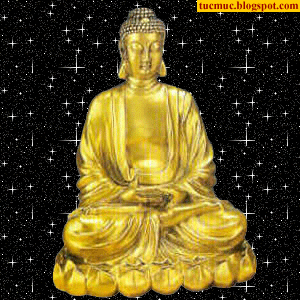Dual autobiography of a brother and sister: the brother is Robert Kiyosaki, best-selling author on personal finance (getting rich), the sister is Emi Kiyosaki, aka Bhikshuni Tenzin Kacho, an ordained buddhist nun in the Tibetan tradition. Sister has a masters in Tibetan from Naropa and works closely with the Dalai Lama. He runs seminars how to get rich by investing, not working. She is an assistant director and teacher at Thubten Dhargye Ling Buddhist Center in Long Beach, California, and a visiting teacher at Thubten Shedrup Ling in Colorado Springs, Colorado.
She met Chogyam Trungpa in Colorado, at Shambhala Mountain Center during her hippy spiritual wanderings in the 70s; her brother Robert was a Marine in Vietnam.
And they are brother and sister! They grew up together. Wacky stuff, eh?
Well, I had to read this when a friend offered to sent it to me. Lately I’ve been looking at how to be of most help in the world, and I’ve been coming up materially short on any material form of help I can offer. Business is not good; cash is not flowing. I’ve listened to Acharya Eric Spiegel and others. And I wonder, how interdependent are cash and dharma, anyway?
Rich Brother, Rich Sister starts from the premise that both protagonists have wealth; one material, one spiritual. (not my terms, btw). But when Tenzin got sick and needed surgery and cardiac care, she didn’t have the money to pay for it, and her insurance company failed to cover it. Destitute, she asked her Rich Brother for money, although they were not particularly close. He did, and he helped her buy a small condo in Arizona that now provides her with some rental income. And he offered to write a book with her, so the book income could contribute to her financial support and security as well.
The book is problematic in tone and structure, filled with repetition and confusing chronology. The writing is very odd in places, and the protagonists’ stories and messages don’t seem to mesh at all, on any level, all while Robert’s exuberant chest-thumping makes Emi, or Tenzin’s story, hard to discern. All quibbles aside, though, the story generated some thought.
One line of thought:
When the chips were down, the sibling who followed the path of a dharma teacher was unable to provide the material conditions necessary for her continued existence. In fact, she had been unable to provide the material conditions to raise her daughter, to whom she was an absentee parent.
Though I may want to shout, “That’s why we need universal health care! That’s why we need strong community child care!” it doesn’t matter. The woman lives in a world without universal health care or child care, yet she failed to see what was around her and to realize one of the basic principles of karma: cause and effect. Actions have results. The action of buying cheap health care has the result of not having money for health care. The action of not choosing to make money has the result of not having any money. What did she think was going to happen when she got sick? Birth, old age, sickness, death. She should have known better!
Interdependence does not mean dependence. If you want to teach the dharma, you had better do what you can to make sure you survive to teach the dharma.
A second line of thought:
Perhaps the buddha had a point in differentiating the practice of a householder from the practice of a monastic. Be one or the other. A half-monastic, like Emi, who exists outside the support system of a monastery, is in trouble. A half-monastic can be a pretty crappy householder. On the other hand, a householder who spends too much time trying to study monastically is gonna be a pretty crappy householder, too, providing for no one very well. I know that many spiritual teachers emphasize to their students that establishing material security is a key to continued practice and growth.
A third line of thought:
Why is this the only setup, for the past, say 2,500 years or so? Can’t we do better? If so, how?
All lines of thought welcome.
More from Beliefnet and our partners

